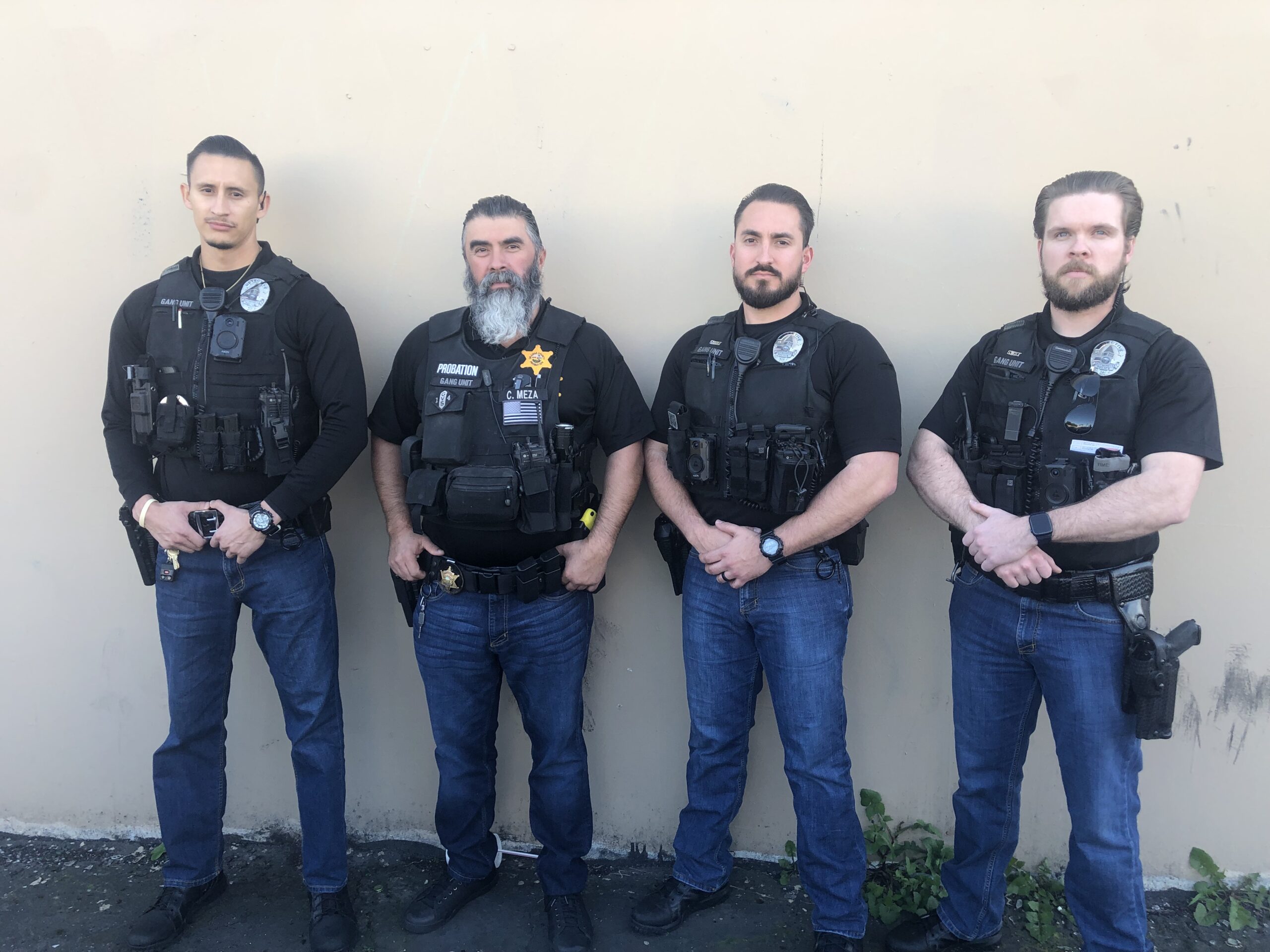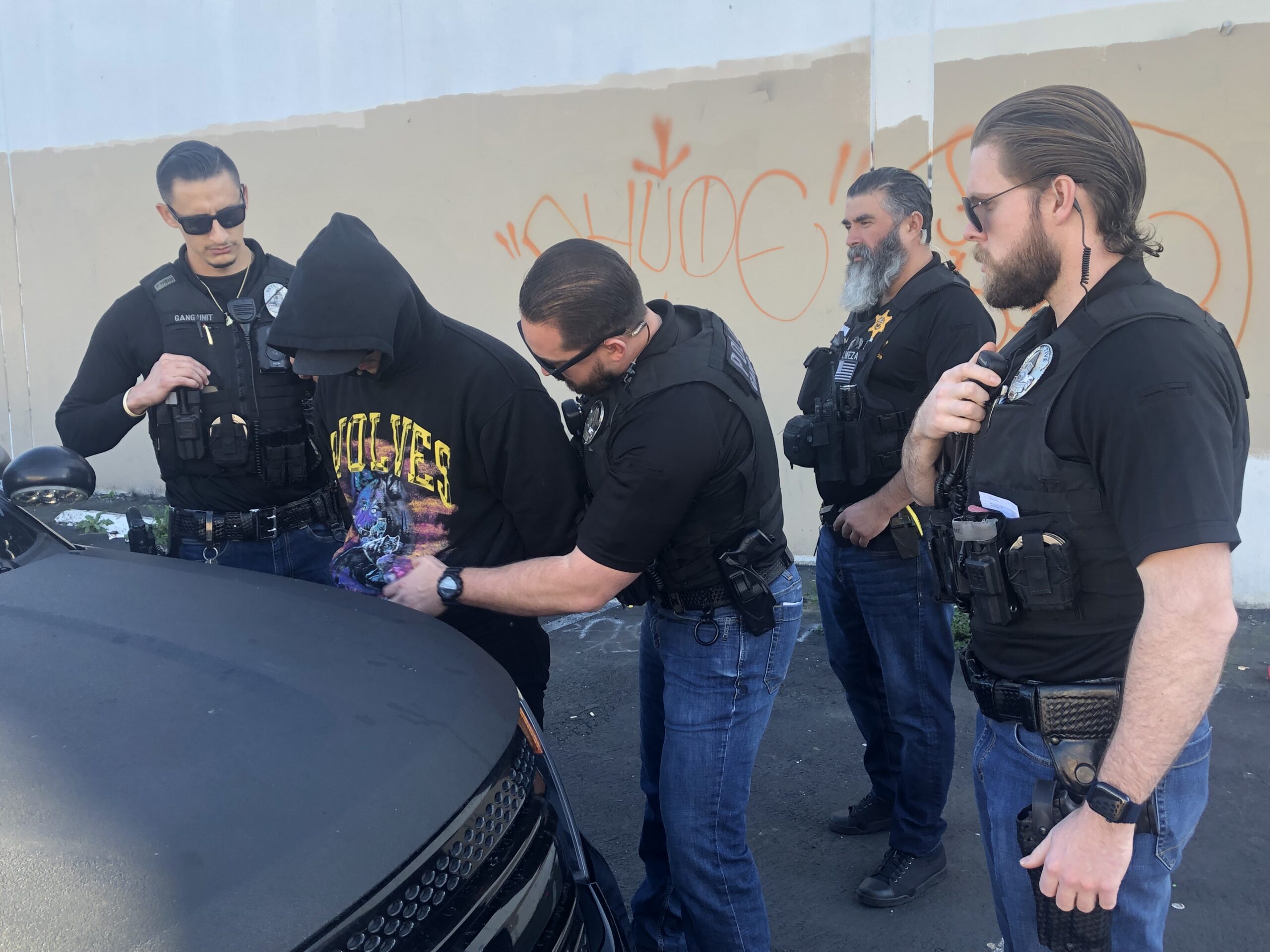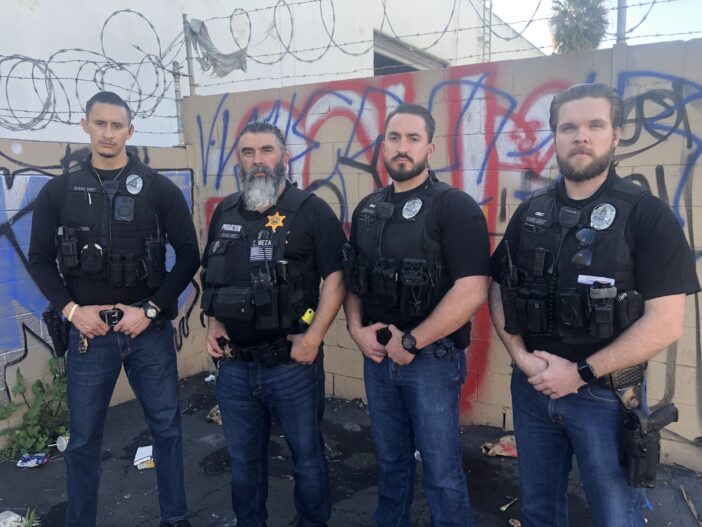Sgt. Eddie Esqueda is not a trailblazing reformer by nature, but when he moved into Westminster Police Department’s Major Crimes unit and saw how enforcement could be improved, he stepped up.
He was given the green light to move ahead and the CAGE unit was born. An acronym for Criminal Apprehension and Gang Enforcement, CAGE concentrates on rounding up criminals with outstanding warrants and putting them back in jail.
“When I came in (to Major Crimes) as a sergeant in 2021, I noticed there were several felons with outstanding warrants,” said Esqueda, a 23-year veteran at the Westminster Police Department. “Some ID’d in violent felonies.”

Members of the Criminal Apprehension and Gang Enforcement (CAGE) team at the Westminster Police Department. Photo provided by the Westminster Police Department
The unit is an evolution of the Gang Enforcement squad, which remains active although gang activity has waned in recent years.
“When we had just a gang unit, things were super active,” said Commander Cord Vandergrift. “Things have changed and gang activity has slowed a little.”
With staffing constraints leaving detectives burdened with large caseloads, and a shuffling in how Deputy District Attorneys were assigned, cracks developed through which criminals and suspects were able to slide.
“I think (the CAGE unit) has greatly enhanced the efficiency in the way the detective bureau handles cases,” said Vandergrift. “They’re a quick response team.”
No longer do criminals have time to roam free while detectives wade through back-logged cases. Through the criminal apprehension team, Esqueda said, “now we’re finding, arresting, and interviewing (fugitives).” That helps jump start the process and give detectives a leg up in their investigations.
Esqueda said that until February 2021, Westminster’s Major Crimes and Gang unit had a Deputy District Attorney who worked in the building with the police. According to Esqueda, this led to an efficient prosecution system as police and the Deputy District Attorney remained literally in close contact as cases were built.
“Nothing beats having a DA on site,” Esqueda said. “He had a desk right next to the gang unit.”
After the Deputy District Attorney was relocated, Esqueda said the follow-up was not as efficient and some fugitives remained free.
The loss of the on-site Deputy District Attorney is beyond the department’s control, Vandergrift says, and though the police department works to keep open lines of communication with the county department, he admits it would be nice to have a prosecutor in-house again.

The Criminal Apprehension and Gang Enforcement (CAGE) team at the Westminster Police Department.
Photo provided by the Westminster Police Department
After launching CAGE in January, Esqueda said the unit made 101 felony arrests in 2022, including 34 fugitives suspected of being involved in violent crimes and 21 arrests of probationers and parolees. In those arrests, the team seized 12 firearms. Since the unit is relatively new, comparable statistics are not available. As a result, Esqueda’s network is setting its own bar, and setting it high.
“We had 11 or 12 arrests in January,” he said. “They’re just rolling and finding lots of success, catching bad guys and reducing crime,” Equeda said.
Since joining the Westminster Police Department, Esqueda has worked numerous positions, but from the outset, he said, “I always dreamed of investigating gang crime.” Now he is up close and personal with gangsters and other chronic criminals.
The CAGE unit consists of three detectives — Andy Travis, Nick Jezulin and Sam Gradilla — and probation officer Carlos Meza, under Esqueda’s supervision.
In addition to criminal apprehension, Esqueda said the team remains committed to the gang element of its mandate.
“We’re continuing proactive enforcement in gang areas and maintaining control over gang culture and actively intervening,” he said.
The unit also engages in joint operations with other gang units in the county. In addition, there is directed enforcement in hot spots when needed, short-term investigations, undercover work, and being involved in community events.
“So far, we’ve had nothing but positive responses,” Esqueda said. “They’ve found their rhythm and are going out and doing it every day.”
 Behind the Badge
Behind the Badge



